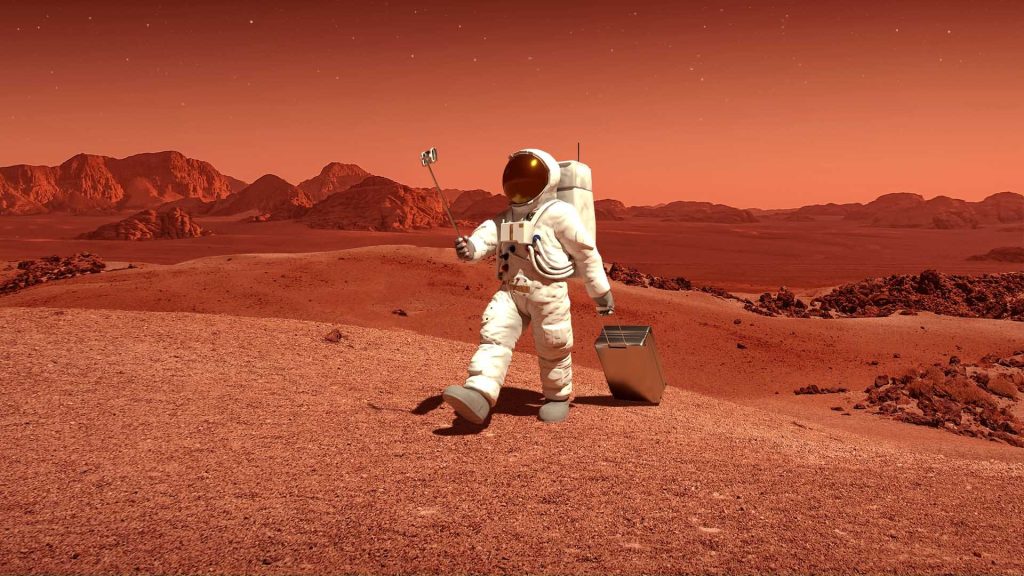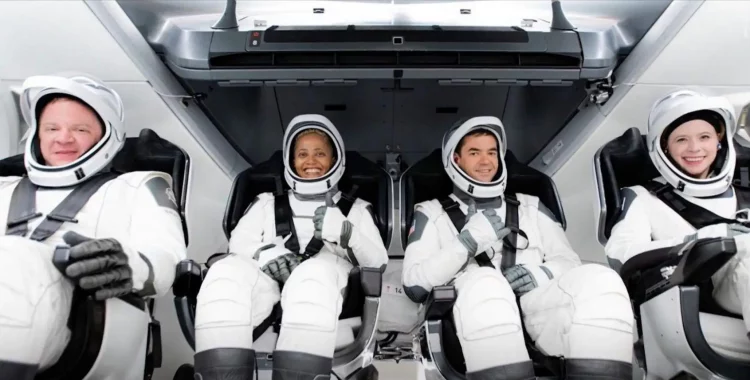Introduction
The concept of interstellar travel—journeying to stars and planets beyond our solar system—has long captured the imagination of science fiction writers, philosophers, and dreamers alike. The idea that humanity might one day escape the confines of our planet and explore other star systems is one of the most tantalizing prospects for the future of our species. It speaks to our innate curiosity, our drive to explore, and our desire to ensure the long-term survival of humanity.
However, despite decades of theoretical research and the incredible advancements we’ve made in space exploration, the reality of interstellar travel remains an elusive goal. While we’ve made significant progress in exploring our own solar system, reaching the stars, which are light years away, is a challenge that involves countless scientific, technological, and financial obstacles. So the pressing question remains: Can interstellar travel become a viable option for human survival in the future, or is it merely an unattainable dream?
This article explores the potential for interstellar travel, examining the scientific and technological hurdles we must overcome, the ethical and philosophical implications of such a venture, and the impact it could have on the future of humanity.
1. The Vision of Interstellar Travel: Past and Present
A. Interstellar Travel in Science Fiction
The concept of traveling to other stars is a prominent theme in science fiction. Writers like Isaac Asimov, Arthur C. Clarke, and Carl Sagan have envisioned journeys to distant stars and planets. These works often present interstellar travel as a defining element of humanity’s future—an inevitable part of our evolution as a species.
- Starships and Hyperspace: In science fiction, interstellar travel is often depicted through advanced technologies like faster-than-light (FTL) travel, warp drives, and wormholes. These ideas allow spaceships to travel vast distances in mere moments or hours, often bypassing the enormous time constraints imposed by the speed of light.
- The “Star Trek” Vision: One of the most iconic examples of interstellar travel in pop culture is Star Trek, which portrays a future in which humanity has mastered the technology to travel to distant star systems, forming an interstellar federation. The optimistic portrayal of space travel in these series inspires many people to imagine that such a future could one day be realized.
B. Scientific Foundations of Interstellar Travel
While science fiction presents an inspiring vision of the future, scientists have also seriously considered the possibility of interstellar travel. In the real world, however, the challenges involved are far more complex and difficult to overcome. Interstellar travel presents a set of physical, technological, and energy-related problems that go well beyond our current capabilities.
In recent decades, scientists like Stephen Hawking and physicist Kip Thorne have speculated on the theoretical principles behind interstellar travel, such as the possibility of warp drives and the use of wormholes. While these ideas remain speculative, they have contributed to a growing interest in making interstellar travel a scientific endeavor rather than merely a work of fiction.
2. The Challenges of Interstellar Travel
A. Vast Distances and the Speed of Light
The primary obstacle to interstellar travel is the sheer distance between stars. Even the closest star system, Alpha Centauri, is over 4.3 light years away. To put that into perspective, current space travel technology would take tens of thousands of years to reach Alpha Centauri, let alone other distant stars.
- Current Speed Limits: The fastest spacecraft ever built by humanity, the Parker Solar Probe, travels at a speed of about 700,000 km/h (about 430,000 mph). At this speed, it would take over 6,000 years to reach Alpha Centauri. Achieving speeds that would make interstellar travel feasible would require breakthroughs in propulsion technology.
- The Speed of Light: The speed of light, which is approximately 299,792 kilometers per second (or 186,282 miles per second), is considered the ultimate speed limit according to Einstein’s theory of relativity. To travel vast distances within a human lifetime, we would need to either approach this speed or find ways to circumvent this limit—an idea that remains theoretical for now.
B. Energy Requirements and Propulsion Technology
To travel to the stars, we need propulsion systems far more powerful and efficient than anything we have today. Our current rocket technology is based on chemical propulsion, which works by expelling mass (fuel) to generate thrust. While effective for reaching the Moon and planets in our solar system, this method is inefficient for interstellar distances.
- Nuclear Propulsion: One of the most promising concepts for interstellar travel is nuclear propulsion, specifically nuclear fusion or fission. Fusion, which powers the Sun, offers a potential energy source that could theoretically power spacecraft at a fraction of the time it would take using chemical propulsion. Projects like the Breakthrough Starshot initiative are investigating the possibility of using light sails powered by lasers to reach nearby stars in a matter of decades.
- Antimatter and Warp Drives: Another speculative concept is the use of antimatter or warp drives. Antimatter, which consists of particles that have the opposite charge to regular matter, could theoretically provide immense amounts of energy if harnessed. However, antimatter is incredibly difficult to produce and contain. Similarly, the concept of a warp drive—essentially “bending” space-time to allow faster-than-light travel—has been theorized but has yet to be realized in any practical form.
C. Life Support and Sustainability
Even if we could develop the necessary propulsion systems, there are additional challenges to ensuring the survival of a human crew on a journey lasting decades, centuries, or even millennia.
- Closed-loop Life Support Systems: One of the key challenges would be creating self-sustaining life support systems that could recycle air, water, and food over long durations. The International Space Station (ISS) has demonstrated the feasibility of closed-loop systems for extended missions in low Earth orbit, but far more advanced systems would be needed for interstellar voyages.
- Radiation Exposure: Space is filled with high-energy radiation from the Sun and cosmic rays, which can pose significant health risks over long periods of exposure. Shielding from this radiation, either by using thick layers of materials or magnetic fields, would be essential to protect the crew.
D. Time Dilation and Generational Ships
For long-duration interstellar journeys, the concept of time dilation, a result of Einstein’s theory of relativity, becomes an important factor. As a spacecraft approaches speeds close to the speed of light, time for the crew aboard would slow down relative to those on Earth. This means that a journey that takes a few years for the travelers could take centuries for those left behind.
- Generational Ships: One potential solution to this issue is the concept of a generational ship, where multiple generations live and die aboard the spacecraft. The descendants of the original crew would be the ones to reach the destination, but they would be born, live, and die in the artificial environment of the spaceship. This idea has been explored in various science fiction works and remains a possibility for long-term human space exploration.

3. The Ethical and Philosophical Implications of Interstellar Travel
A. The Future of Humanity: Should We Stay or Should We Go?
The prospect of interstellar travel raises deep ethical and philosophical questions. If humanity were to embark on a journey to colonize other star systems, what would that mean for life on Earth? Could we abandon our home planet for the uncertainty of distant worlds? How would we ensure that we do not make the same mistakes in space as we have on Earth?
- Preserving Earth: As we explore the possibility of settling on other planets, it is crucial that we also prioritize the preservation of our home planet. The environmental degradation, climate change, and other challenges we face on Earth must be addressed before we can consider expanding beyond our solar system.
- Ethical Considerations in Colonization: If we were to find habitable planets, the question of whether we have the right to colonize these worlds is a matter of great debate. Should we respect the potential for extraterrestrial life, or should we pursue space colonization as an escape from Earth’s problems?
B. The Search for Meaning in the Cosmos
Beyond the practical challenges, interstellar travel also raises fundamental questions about humanity’s place in the universe. If we reach the stars, would it fundamentally change how we view ourselves? Would it lead to a new era of human exploration and discovery, or would it serve as an escape from the challenges we face on Earth?
- Exploration vs. Escape: Is our desire for interstellar travel motivated by a genuine thirst for exploration and knowledge, or is it a way to escape the problems we face on Earth? This question will likely shape the future direction of humanity’s space endeavors.
4. Conclusion: A Dream or Reality?
The dream of interstellar travel is deeply embedded in our collective imagination, and there is no doubt that significant advancements in technology and space exploration are required to make it a reality. While interstellar travel is not likely to become a practical reality in the immediate future, the pursuit of this goal has already spurred remarkable innovations in space propulsion, life support systems, and space exploration.
For now, interstellar travel remains an ambitious dream. However, with continued research, investment, and technological advancements, humanity may one day find a way to transcend the limits of our solar system and explore the stars. Whether this will become a viable choice for human survival, or remain a distant aspiration, depends on our ability to solve the vast scientific and technological challenges ahead. Regardless, the quest for interstellar travel is one of the most exciting frontiers in the history of human exploration.











































Discussion about this post